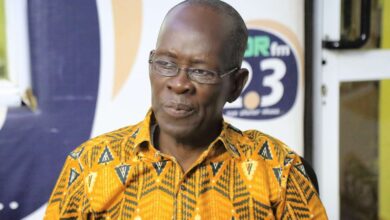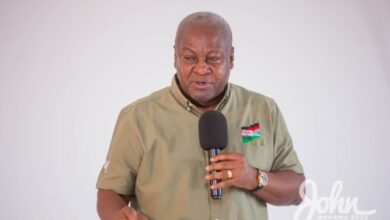
In 2016 and 2020, the Vice President’s carefully crafted political messages, particularly those promoting digitization, worked well in securing political capital. His ability to present himself as a visionary leader was amplified by a highly effective propaganda machine. However, now that the time has come for him to account for his stewardship as head of the Economic Management Team over the past eight years, the truth has become harder to deny. His earlier political rhetoric now seems increasingly hollow, especially as the reality of his leadership becomes more evident.
It’s important to explore what goes through the minds of politicians when they step onto a platform and opt not to speak the truth. What drives them to avoid transparency, to engage in spin, and to sell narratives that ultimately distort the reality of governance? As I critically analyse the political dynamics of packaging and branding in election campaigns, it’s clear that the NPP has often been selective with the truth, packaging its message in a way that deceives and manipulates public opinion. The elephant party’s narrative is often crafted with careful attention to image, but it lacks honesty.
Meanwhile, the NDC (the umbrella family) promotes a message of hope, and independent candidates are presenting fresh perspectives, appealing to voters tired of traditional politics. They speak of a “new way” and are gaining traction with their messages of renewal and rethinking political processes.
Questions of Leadership and Accountability
But why has this vision only surfaced now, after eight years in power? Why has the current leadership failed to deliver on its promises during its long tenure? At this point, it’s time for Ghanaians to hold those in power accountable — particularly those who present themselves as angels in public spaces, wearing coats and pristine outfits while wreaking havoc behind the scenes. The façade of competence and morality is wearing thin.
We must ask: Where is Ken Ofori-Atta, the Finance Minister, in this conversation? What has he done to arrest the economic decline?
As we approach the 2024 elections, there is growing frustration among the public, especially the youth. Ghanaians are questioning who they can trust, and many are at a loss for what to do. The youth are disillusioned, unsure of their future, while the elderly are struggling to survive in a country where the promises of prosperity seem distant. In this climate of confusion, the political elites have failed to provide clear answers, and Ghanaians are left wondering, What now?
The Disappointment of Dr. Mahamudu Bawumia
Dr. Mahamudu Bawumia, Vice President of Ghana, is facing increasing disappointment from the public. His political soundbites, which once dazzled the electorate with promises of economic progress and digitization, have now become hollow. The media may still give him credit for his orchestrated political messages, but the reality is that many of those promises have not materialised. His once-visionary leadership now feels like a series of carefully crafted political deceits that have betrayed the trust of the people.
The Center for Democratic Development (CDD) recently published a report, ahead of the December elections, emphasizing that honesty, character, and the fulfillment of campaign promises are the most important factors shaping voters’ decisions. The survey revealed that Ghanaians prioritise a candidate’s honesty, followed by their character and their ability to keep promises. Bawumia and the NPP’s inability to address the country’s pressing issues—particularly the economic challenges—have left many voters questioning the integrity of their leaders.
The Dollar Index and the Crisis of Leadership
One of the most glaring failures of the NPP government is its inability to manage the depreciation of the Ghanaian cedi against the US dollar. The depreciation has triggered high inflation, making everyday life harder for Ghanaians. I urge Dr. Bawumia to reflect on this during quiet moments with his family. Am I truthful to Allah and to myself?
As Ghanaians prepare to vote in the upcoming elections, there is an air of anger and frustration. The youth are at a crossroads, confused and uncertain. The elders are suffering. In this environment, the question must be asked: What do the political elites want from us? What can they possibly offer now, after eight years of failed promises?
The New Patriotic Party (NPP) – Achievements and Challenges
The NPP, as a political force in Ghana, has had a history of both achievements and challenges. The most recent government, under President Nana Addo Dankwa Akufo-Addo, has faced significant hurdles in managing the country’s affairs. While there have been successes, especially in infrastructure and education, the reality of governance has proven far more complex than the party’s polished campaign messages suggested.
- Economic Struggles and Debt Crisis
One of the central issues for the NPP government has been the economy. Ghana’s debt has skyrocketed under the current administration, with the country’s debt-to-GDP ratio exceeding 100%. The government’s promise to reduce debt has proven to be an illusion, as external and internal borrowing continues to rise.
Inflation and Currency Depreciation: Inflation rates have soared, exacerbated by external factors such as the COVID-19 pandemic and the global economic downturn. The Ghanaian cedi’s depreciation against the US dollar has led to rising prices, putting a significant strain on the average Ghanaian.
IMF Bailout: In 2023, the government entered into a bailout agreement with the IMF to stabilize the economy. However, this came with painful austerity measures, such as cuts to public spending and increased taxes, which have been unpopular among the population.
- Governance and Corruption Concerns
Corruption remains a major issue for the NPP, despite the party’s promises to clean up government. Several high-profile scandals, such as the “galamsey” (illegal mining) crisis and the Agyapa deal (a controversial gold royalties agreement), have tarnished the NPP’s image.
Transparency and Accountability: The government has been criticized for not doing enough to address corruption at the highest levels. Anti-corruption institutions, such as the Office of the Special Prosecutor, have been underfunded and undermined by political pressures, making it difficult for them to effectively tackle corruption.
- Infrastructure and Social Services
The NPP has placed a heavy emphasis on infrastructure development, but the reality has been mixed. While there have been some notable projects, delays, cost overruns, and uneven distribution of benefits have raised concerns.
Education and Healthcare: The introduction of free Senior High School education was a major achievement, but challenges such as overcrowding, poor infrastructure, and underfunding have hampered its effectiveness. The healthcare system, despite efforts to improve it, is still underfunded, and many public hospitals suffer from shortages of equipment and medical professionals.
- Internal Party Challenges and Factionalism
The NPP is not immune to internal divisions, which have often hindered the party’s effectiveness. These tensions, particularly around leadership succession, have led to infighting and reduced public confidence.
Factionalism: The NPP has faced internal factionalism, with different camps competing for influence. This has created instability within the party and has affected its ability to present a unified front to the electorate.
Leadership Transition: The question of who will succeed President Akufo-Addo has created tension within the party. As public trust in the administration wanes, the need for a smooth and effective leadership transition becomes more urgent.
- The Electoral Competition
As Ghana heads into the 2024 elections, the political landscape is highly competitive. The NPP will face stiff opposition from the NDC and independent candidates, who have capitalized on the growing dissatisfaction with the current government.
Youth Disillusionment: The youth, who make up a significant portion of the electorate, are increasingly disillusioned with the government’s inability to provide jobs and economic opportunities. This demographic is likely to play a decisive role in the upcoming elections.
- Regional and Global Dynamics
The NPP government must also navigate broader regional and global challenges, including security threats and environmental concerns.
Security: Ghana has historically been one of the most stable countries in West Africa, but the rising threat of terrorism and extremism in the Sahel region poses a growing security risk.
Climate Change: Climate change, exacerbated by illegal mining (galamsey), has created significant environmental challenges. The NPP government has faced criticism for its lack of action on these issues.
As we countdown to December 7th polls, the NPP government faces a difficult road ahead. While there have been successes, the challenges are formidable, and the party’s ability to address its economic, governance, and social issues will determine its fate in the 2024 elections. The public’s trust in the party has eroded, and as the election draws near, many Ghanaians are questioning whether the promises made by the NPP leadership were genuine or simply political rhetoric. The coming months will likely be pivotal in shaping the future of Ghana’s democracy.
Story by: Alexander Kukah




